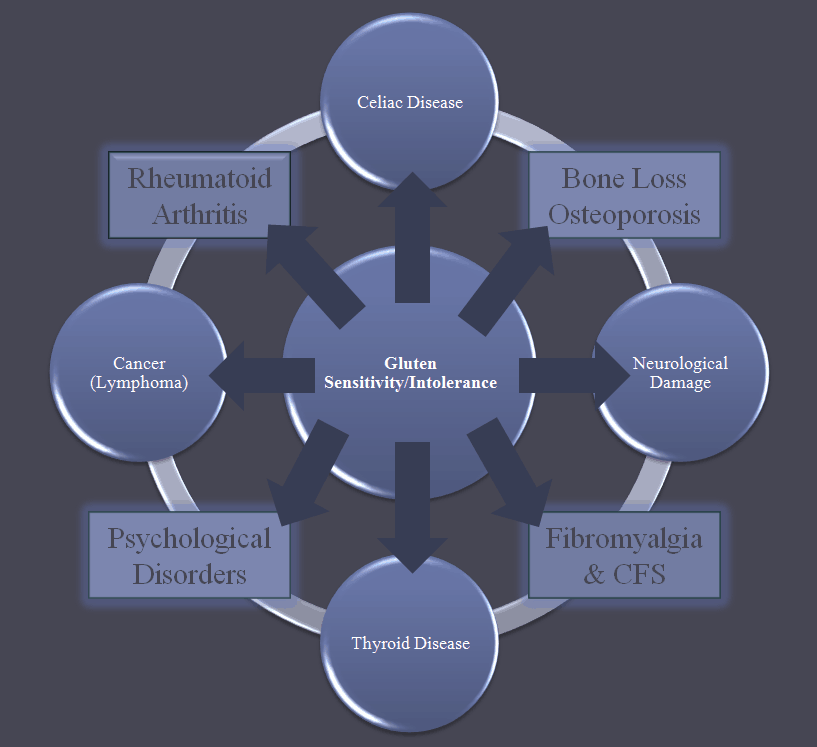![]() Marios Hadjivassiliou and colleagues have published yet another paper on gluten sensitivity… The Summary of the paper is below. Bolded points shed light on many misconceptions about gluten sensitivity.
Marios Hadjivassiliou and colleagues have published yet another paper on gluten sensitivity… The Summary of the paper is below. Bolded points shed light on many misconceptions about gluten sensitivity.
“Gluten sensitivity is a systemic autoimmune disease with diverse manifestations. This disorder is characterised by abnormal immunological responsiveness to ingested gluten in genetically susceptible individuals. Coeliac disease, or gluten-sensitive enteropathy, is only one aspect of a range of possible manifestations of gluten sensitivity. Although neurological manifestations in patients with established coeliac disease have been reported since 1966, it was not until 30 years later that, in some individuals, gluten sensitivity was shown to manifest solely with neurological dysfunction. Furthermore, the concept of extraintestinal presentations without enteropathy has only recently become accepted. In this Personal View, we review the range of neurological manifestations of gluten sensitivity and discuss recent advances in the diagnosis and understanding of the pathophysiological mechanisms underlying neurological dysfunction related to gluten sensitivity.”
Source:
The Lancet Neurology, Volume 9, Issue 3, Pages 318 – 330, March 2010.
Gluten Free Society’s Stance:
Thanks to the work of pioneers like Dr. Hadjivassiliou, gluten sensitivity continues to be recognized as something distinct from celiac disease. Many doctors and celiac patients believe that gluten sensitivity and celiac disease are the same thing. The truth of the matter is that gluten sensitivity is not a disease. It is a state of genetics. Celiac disease is only one of many ways that gluten sensitivity can manifest. The more research that is done, the more we find that gluten proteins contribute to a host of different problems. The diagram below illustrates some of these research correlations:
It is time for the emphasis of research to be placed on the mechanisms by which gluten can damage those with gluten sensitivity. Only then will doctors and patients alike be able to recognize and identify whether or not their symptoms are stemming from gluten issues.
Watch this video for more on the differences between gluten sensitivity and celiac disease…

Wonderful layout!
thank you very much
Learning more everyday because of you.. Thank you so much
Thank you! I was told over and over by a variety of doctors who should have known better to not bother with a gluten free diet because I wasn’t a celiac and to not listen to “gluten nazis” . . . even when I told them that after going gluten free I no longer had two migraines per week, insomnia, morning panic attacks, and persistent diarrhea. The many other symptoms and ailments on my list are all improving slowly — as are those that have made life miserable for my mother and my four children for so long. We passed on countless prescriptions for our symptoms (because they didn’t usually help anyway) and now rely on a wonderful naturopath who has helped us all significantly. I have run into countless others who’ve questioned their doctors about the relation of food to their obvious gluten-related symptoms who have been told to not worry about it, all the while the person’s condition worsens. It’s incompetence and negligence.
i did test positive for the gene HLA-DQ 8 ,so does that mean i could have celiac or i do have celiac ??